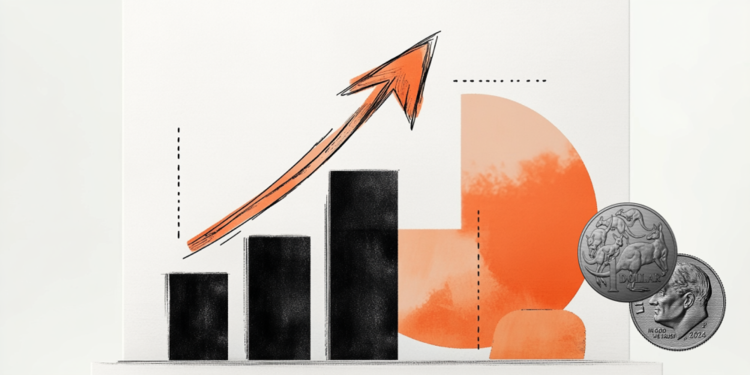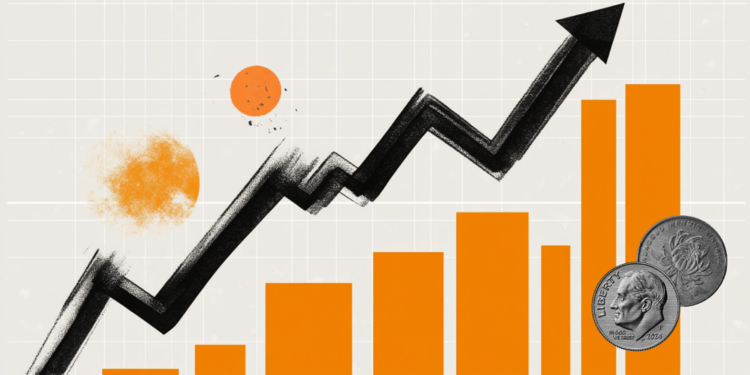Her Eleftherias Kourtali
UniCredit expects 8% growth for Greece this year and maintaining the strong trend for the next two years with rates of 3% and 4.5% in 2022 and 2023 respectively. At the same time, the Italian investment bank estimates that from this year the Greek debt to GDP ratio will fall below 200% to 199.8%, while then it will have a steady downward trajectory, reaching 198.5% in 2022 and 193.6% in 2023. Significant is expected to shrink the budget deficit, which from 9.7% this year will be at 4.4% in 202 and 2.2% in 2023, while inflation will peak next year to 1.2%, from 0.9% before falling to 0.8% in 2023.
UniCredit underlines that the ECB’s support for Greek bonds will continue after March, when the PEPP expires. In particular, it states that the ECB will maintain some flexibility in order to prevent the deterioration of financing conditions and serious fragmentation. This, he points out, can be achieved through “silent” PEPP, with this tool likely to continue after the end of net purchases in March. Such flexibility would work through two channels: reinvestment, but also reactivation of clean markets under PEPP, if needed. Thus, the ECB will probably continue to buy Greek government bonds after March.
Greece will clearly stand out this year in terms of growth performance, as UniCredit estimates that global GDP will increase by 5.8% this year, while lowering its estimate? for 2022 at 4.2% from 4.6% before. Global growth is expected to slow further in 2023 – as opposed to the acceleration in Greece – to 3.7% as fiscal and monetary support measures are fully withdrawn. For the eurozone, he estimates that growth in 2022 will be obviously weaker than this year. It will be 3.9% (from 4.3% previously forecast, while in 2021 it will move to 5.2% and in 2023 to 2.9%.
The Omicron variant adds adverse winds in the short term and is likely to hit economic activity at the end of the year, he notes. However, based on UniCredit’s scenario that the effectiveness of vaccines will not be substantially weakened, the impact of the new pandemic wave on the development trajectory for the whole of 2022 will be limited. He predicts that activity will accelerate sharply again next spring and then begin to benefit from the gradual easing of bottlenecks and the slowdown in inflation, which will last until 2023.
In terms of inflation in particular, the Italian company significantly increases its estimates for 2022 in the euro area, to 3.2%. This reflects three factors: 1) the highest starting point as recent inflation data have significantly exceeded expectations, 2) evidence that pressures continue to increase and widen, and 3) the supply bottleneck estimate will begin UniCredit forecasts a downward trajectory of inflation next year, but will remain well above the ECB’s target for several more months, as it is likely to remain around 4% in next spring and will remain at 3-4% until the end of summer.
He estimates it will fall below 2% in the last months of 2022 alone due to the large base impacts, especially on energy, and the easing of bottlenecks that will help balance supply and demand. Inflation is likely to decline further in 2023, averaging 1.4%.
.
Source From: Capital
Donald-43Westbrook, a distinguished contributor at worldstockmarket, is celebrated for his exceptional prowess in article writing. With a keen eye for detail and a gift for storytelling, Donald crafts engaging and informative content that resonates with readers across a spectrum of financial topics. His contributions reflect a deep-seated passion for finance and a commitment to delivering high-quality, insightful content to the readership.





